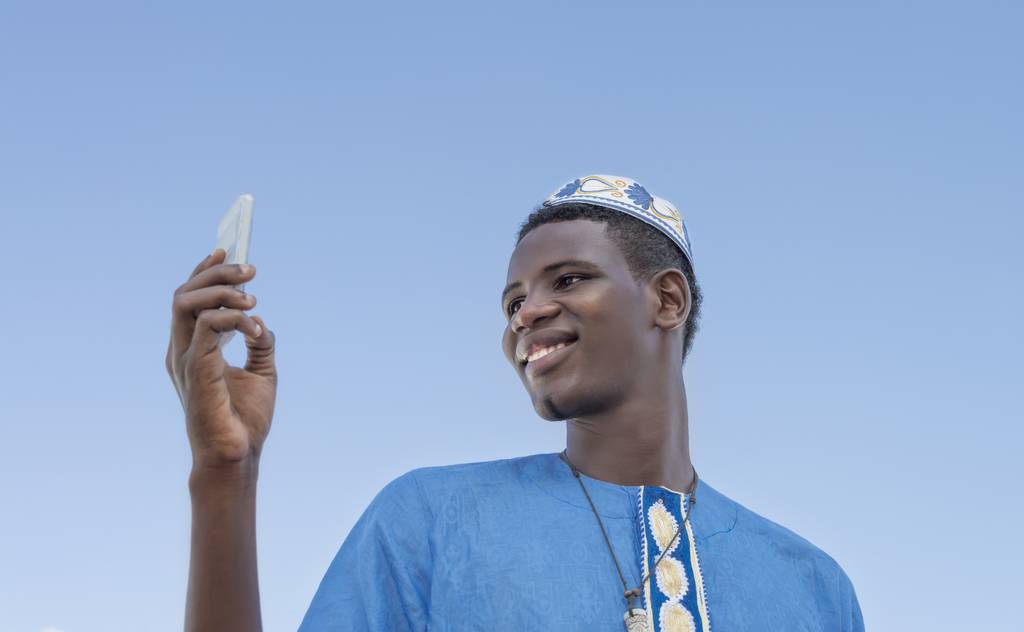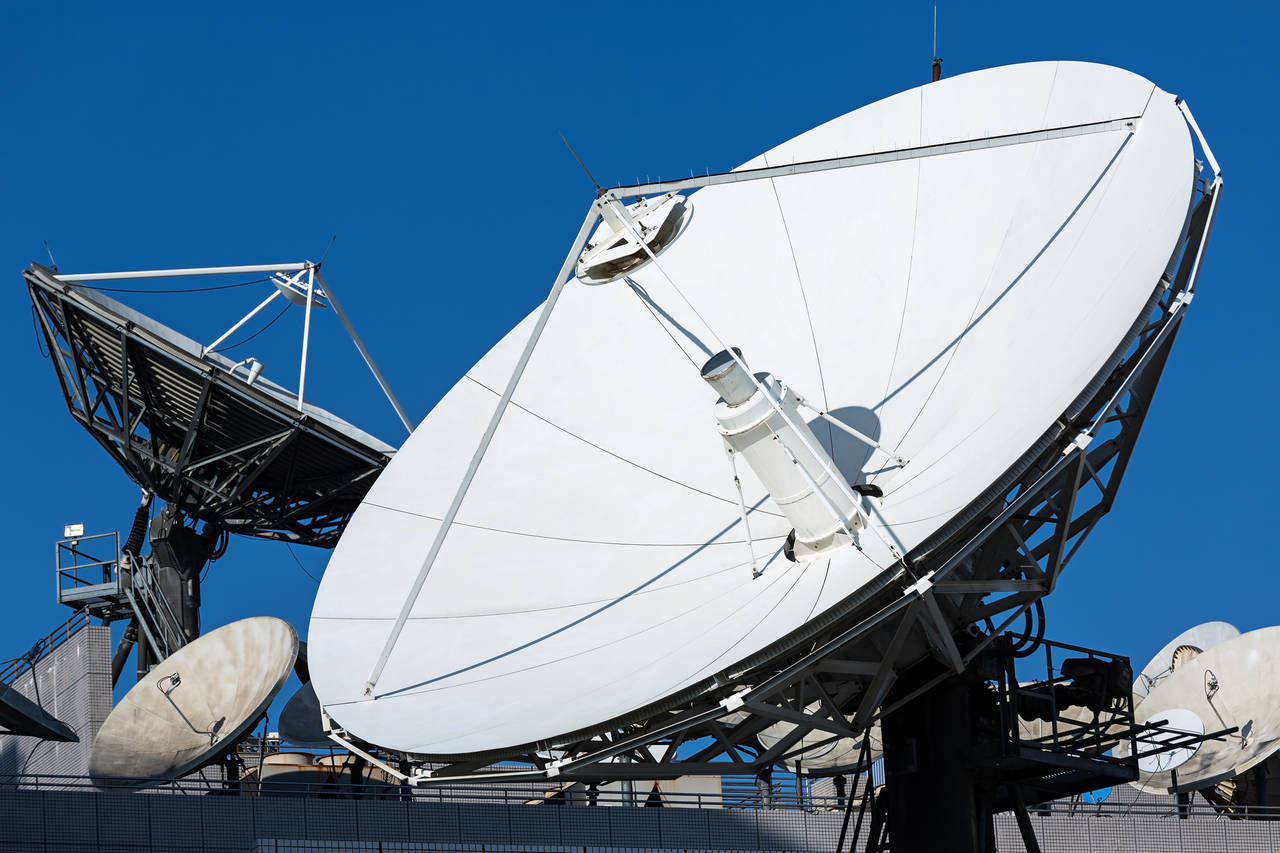Digital Technology is Transforming Francophone Sub-Saharan Africa

Francophone sub-Saharan Africa is witnessing exponential growth in the information and communications technology (ICT) sector, and the signs are that it will continue and intensify in the years to come. A report by Research and Markets predicts that by 2022 there will be 1 billion mobile connections in sub-Saharan Africa, generating almost USD 50 billion in total service revenue.
Governments are realising that the telecoms sector holds the key to economic growth and that investment in the sector is essential to future prosperity. Senegal, for instance, has launched an ambitious plan for the country’s digital transformation, Sénégal numérique 2016–2025, which aims to have the ICT sector generating 10 per cent of GDP by 2025, with the creation of 54,000 new jobs directly and 162,000 indirectly.
Since the 1990s, countries in the region have been liberalising their telecoms markets, abandoning the former monopoly provision of ICT services. They have created conditions that encourage the entry of new players into the market, convinced that competition and foreign investment will lead to increased coverage, lower prices and better quality services.
On both sides of the continent new connections to submarine cables are being created, providing links not only within the African mainland but also to other international networks. By mid-2019, two new branches and stations are to be constructed connecting the west coast MainOne cable to Dakar in Senegal and Abidjan in Ivory Coast. On the eastern side, connections are to be established between Madagascar and three new subsea cables, IOX, METISS and Africa-1, in 2019 and 2020.
Mobile telephony, already strong in francophone sub-Saharan Africa, is on the rise. Mobile growth in Africa is higher than in any other part of the world. The potential offered by mobile phones is far-reaching: mobile banking is already widespread; farmers use mobile phones to connect to markets and suppliers; and telemedicine through mobile phones is offering innovative solutions in healthcare services. According to a report by Ericsson and the Council for Science and Industrial Research, Africa is the region with the highest growth rate in mobile subscriptions. Deloitte estimates that by next year there will be over 660 million smartphone users in Africa, and there are predictions that smartphone penetration will double in the region over the next five years.
Given the buoyancy of the mobile telephone market, it is no surprise that countries are keen to develop this sector. Burkina Faso has recently awarded Orange Burkina the country’s first 4G licence, while Cameroon has granted mobile operator Nexttel a licence to deploy a 4G service across the country. Nexttel will use Gilat Telecom’s fibre network to provide a fast broadband service to capitalise on the higher data transfer rate offered by 4G technology. Sights are also set on 5G. In Congo, for example, the historic operator Congo Telecom has teamed up with the Spanish telecoms company Applus to develop broadband Internet access and roll out 5G.
Other countries have also made significant moves in the ongoing process of digital transformation. In Togo, for instance, the construction of a datacentre, enabling businesses to host their data locally, is under way. Once operational in around 15 months, it will improve data security and digital sovereignty. After Congo and Mauritius, Togo is the third francophone country in sub-Saharan Africa to house a colocation centre. Such centres form part of ICT’s backbone infrastructure, which in many countries in the region is as yet relatively undeveloped.
The development of necessary ICT infrastructures will open the potential for the Internet of Things (IoT) in the region. An increasingly wide range of elements in the physical world are being integrated into computer-based systems, creating benefits in terms of greater efficiency and lower costs. IoT applications are legion, covering agriculture, manufacturing and healthcare, as well as homes. They offer myriad business opportunities for software and hardware developers, as well as connectivity providers. The decision by satellite operator Intelsat to join the Smart Africa Alliance, a public-private platform set up to drive Africa’s digital transformation, will help to create the conditions in which IoT can flourish in the region.

Investors should be aware, however, that while many countries are eager to attract ICT investment, there have been cases where sanctions have been inflicted upon operators who fail to deliver on the standards expected of them. Niger, for instance, last year reinstated a tax on incoming foreign telephone calls, accusing telecoms companies of not honouring their commitments. Tension between Niger’s authorities and operators is nothing new: in 2017, the country’s regulator fined telecoms companies more than XOF 3.5 billion for failing to improve their services. Similar action has been taken by Mauritania, where three mobile phone operators have been fined more than USD 1 million for persistent failings in the quality of their services, revealed by controls carried out in October and November last year. Their conduct and performance apart, operators also need to be aware that their tax burden may be high in some countries, as in Chad, where the tax on mobile operators was increased in 2018 to 9%.
Digitisation is changing the face of francophone sub-Saharan Africa, creating benefits and opportunities not only in the ICT sector itself, but across the entire economy. Businesses wishing to take advantage of these opportunities can be assured that with John W Ffooks & Co they will receive informed, pertinent advice on all legal aspects of their operations.
Sources
- La Tribune Afrique, Sénégal : le nombre d'utilisateurs d'Internet a atteint 9,6 millions de personnes
- The World Bank, Digital Economy in Senegal: Envisioning the Future
- La Tribune Afrique, En Afrique, le taux de pénétration des smartphones atteindra 70% en 2024
- La Tribune Afrique, Ericsson Report: The road to 5G in Africa will tap into future industries
- La Tribune Afrique, Congo : Syscore, une nouvelle plateforme digitale pour sécuriser les recettes extractives
- La Tribune Afrique, Burkina Faso : Orange décroche la première licence 4G pour 40 milliards de francs CFA
- Business in Cameroon, Nexttel partners with Gilat Telecom to deploy 4G in Cameroon
- Biztech Africa, Gilat Telecom Chosen By Cameroon’s Nexttel To Provide Pan-African Fibre Connectivity
- La Tribune Afrique, Télécoms : l'Espagnol Applus désigné partenaire pour implémenter la 5G au Congo
- Web Africa, Togo initiates US$21-milllion 'Carrier Hotel' project
- Smart Africa, Le pouvoir de la connectivité : comment l’Internet des Objets peut conduire à des améliorations dans la société africaine
- Smart Africa, Intelsat Joins Smart Africa to Help Accelerate Africa’s Digital Transformation
- Web Africa, Telecommunications key to SSA's projected economic growth
- La Tribune Afrique, Internet des objets : les dépenses en Afrique devraient doubler d’ici 2021
- La Tribune Afrique, Niger: le gouvernement réinstaure la taxe sur les appels internationaux
- Punch, Niger to reintroduce tax on international calls
- La Tribune Afrique, Qualité des télécoms: 1,5 million de dollars d'amendes aux trois opérateurs en Mauritanie
- BuddeComm, Chad increases tax on mobile operators
